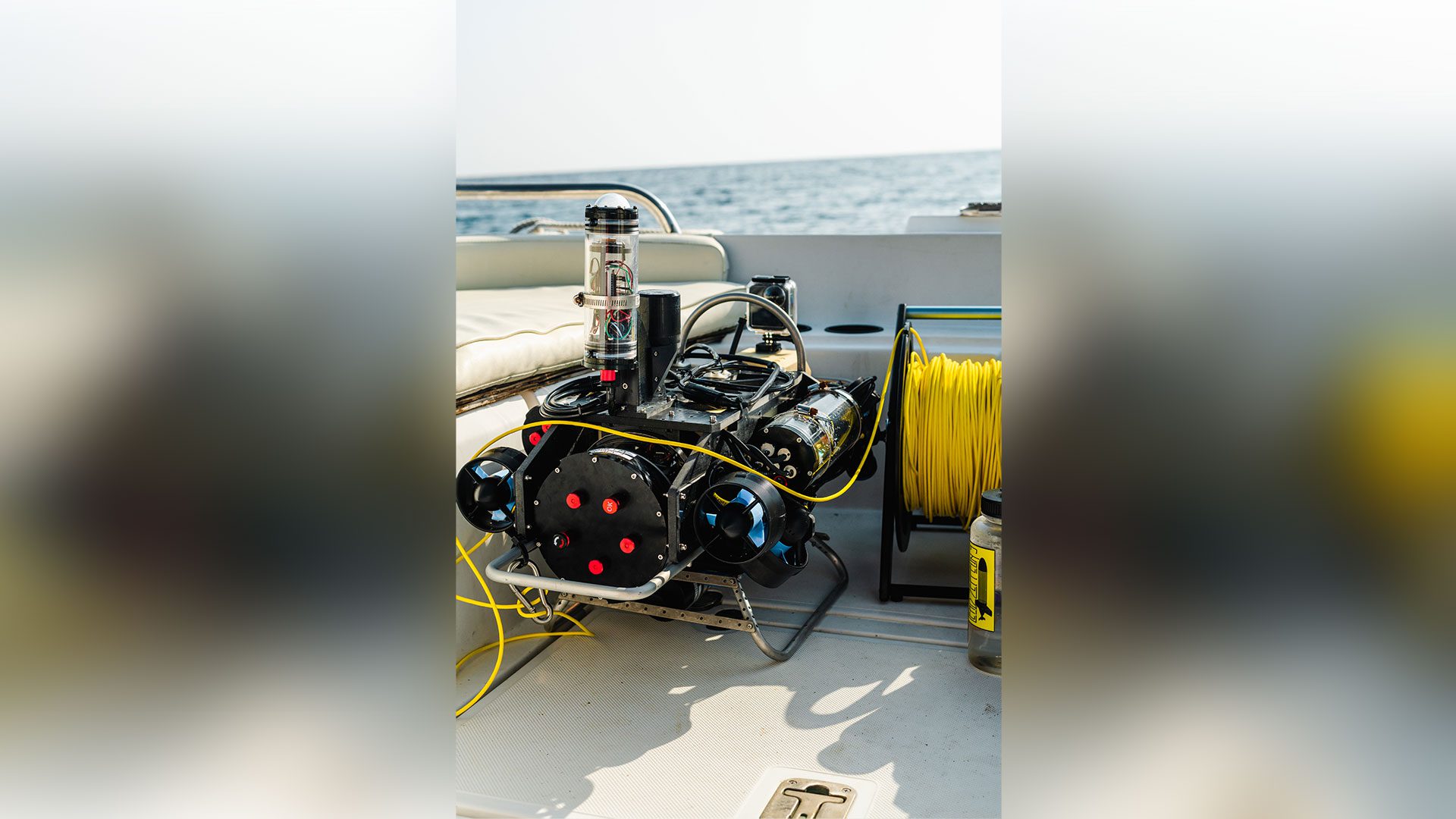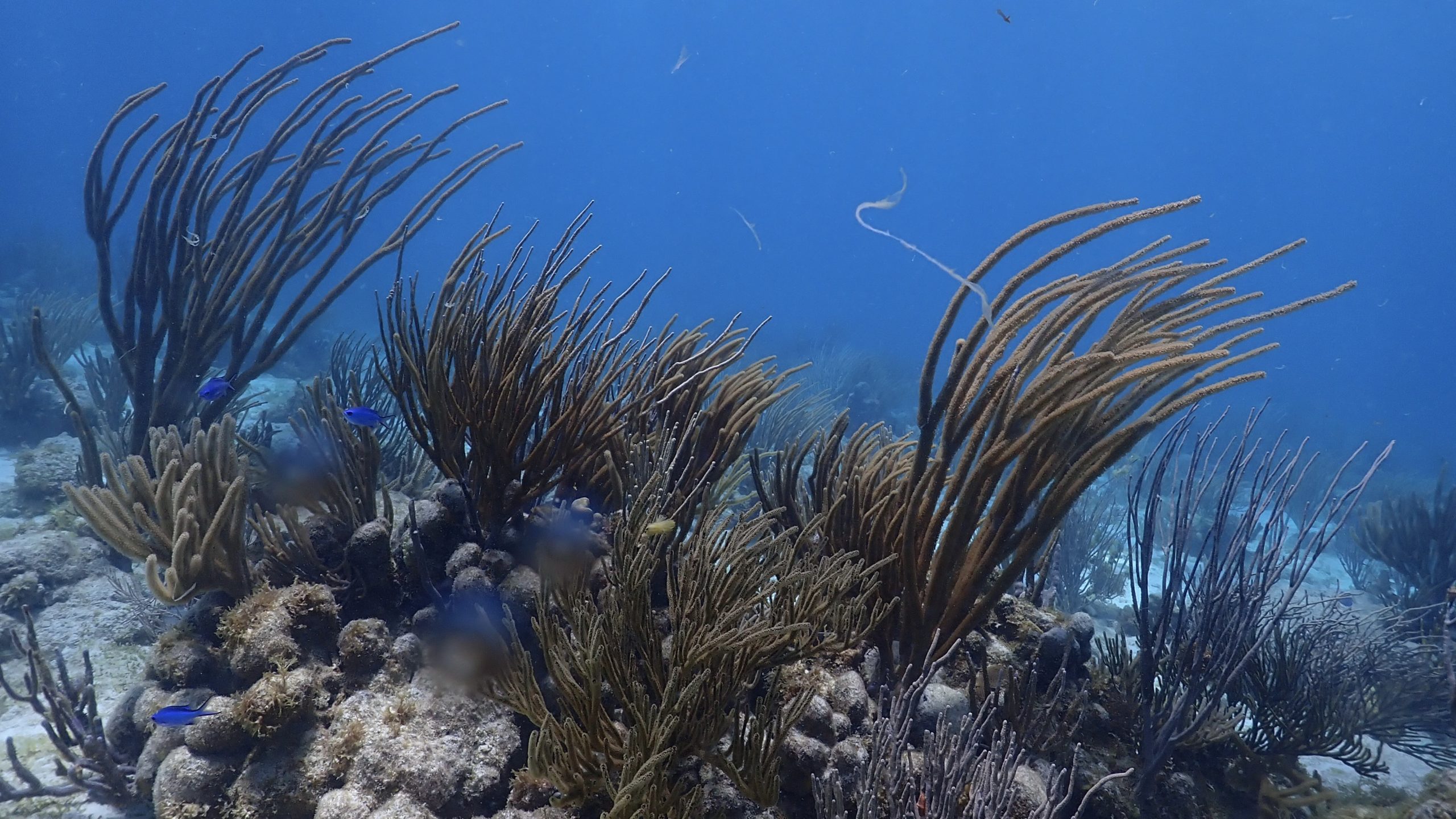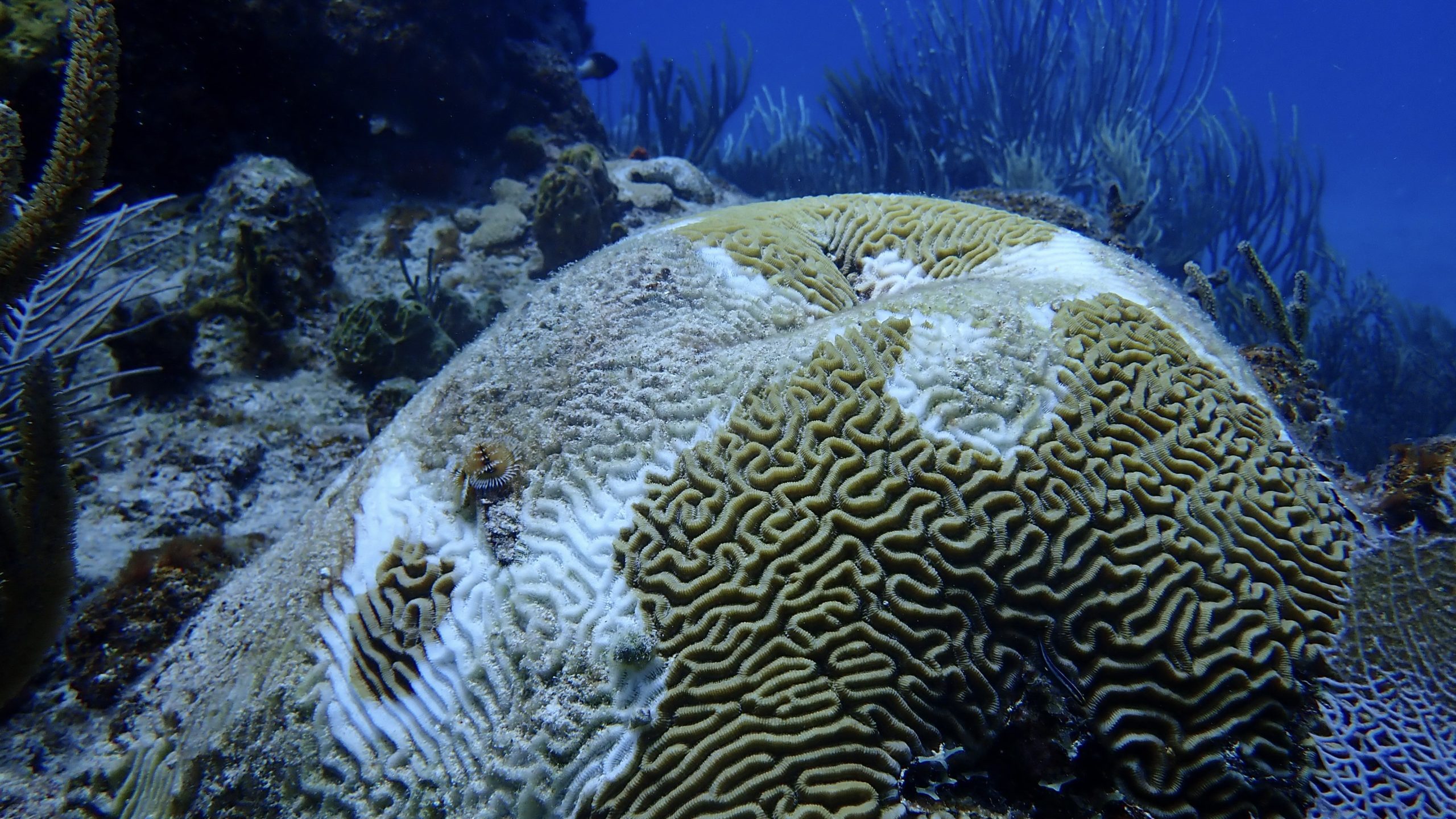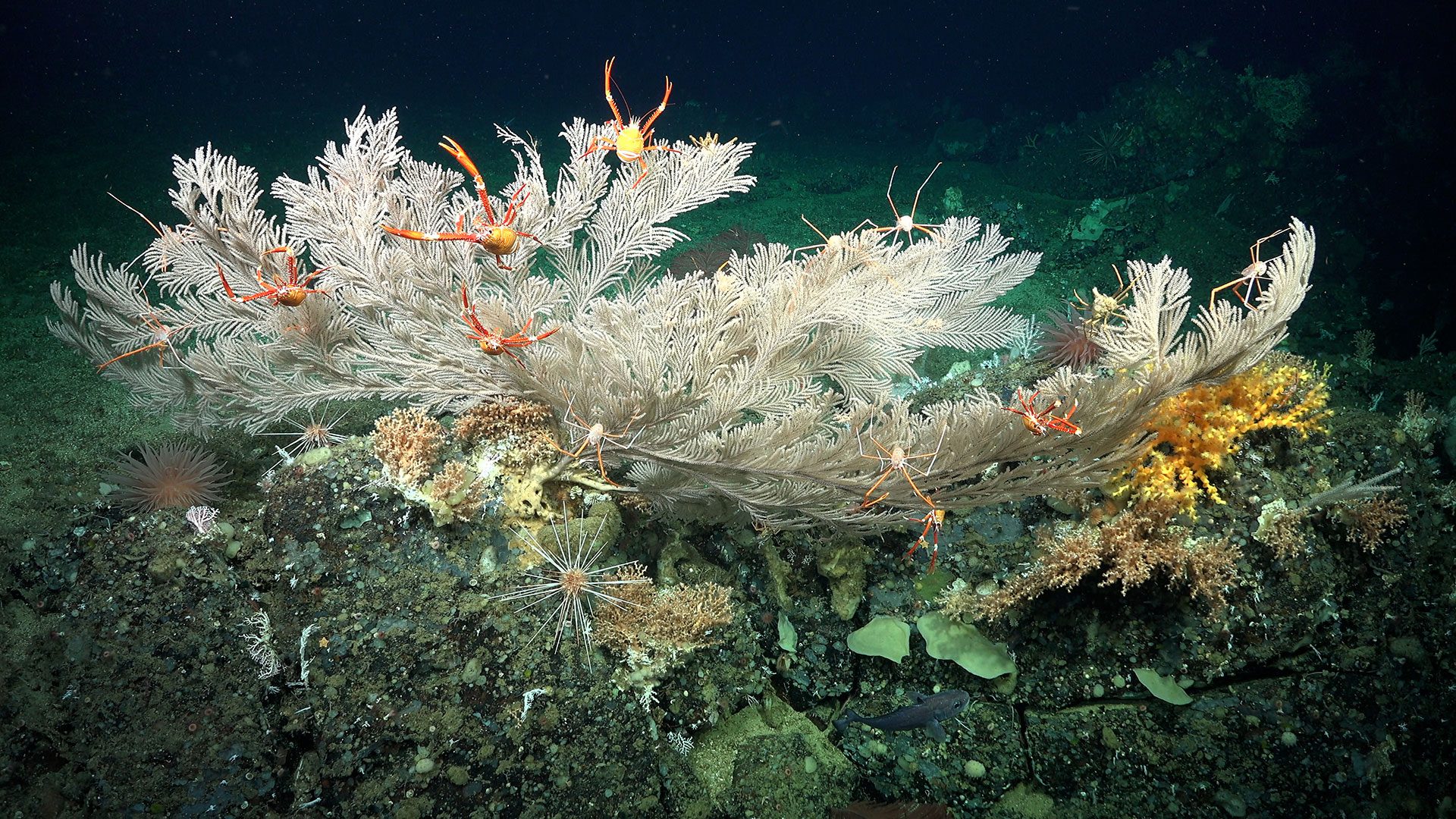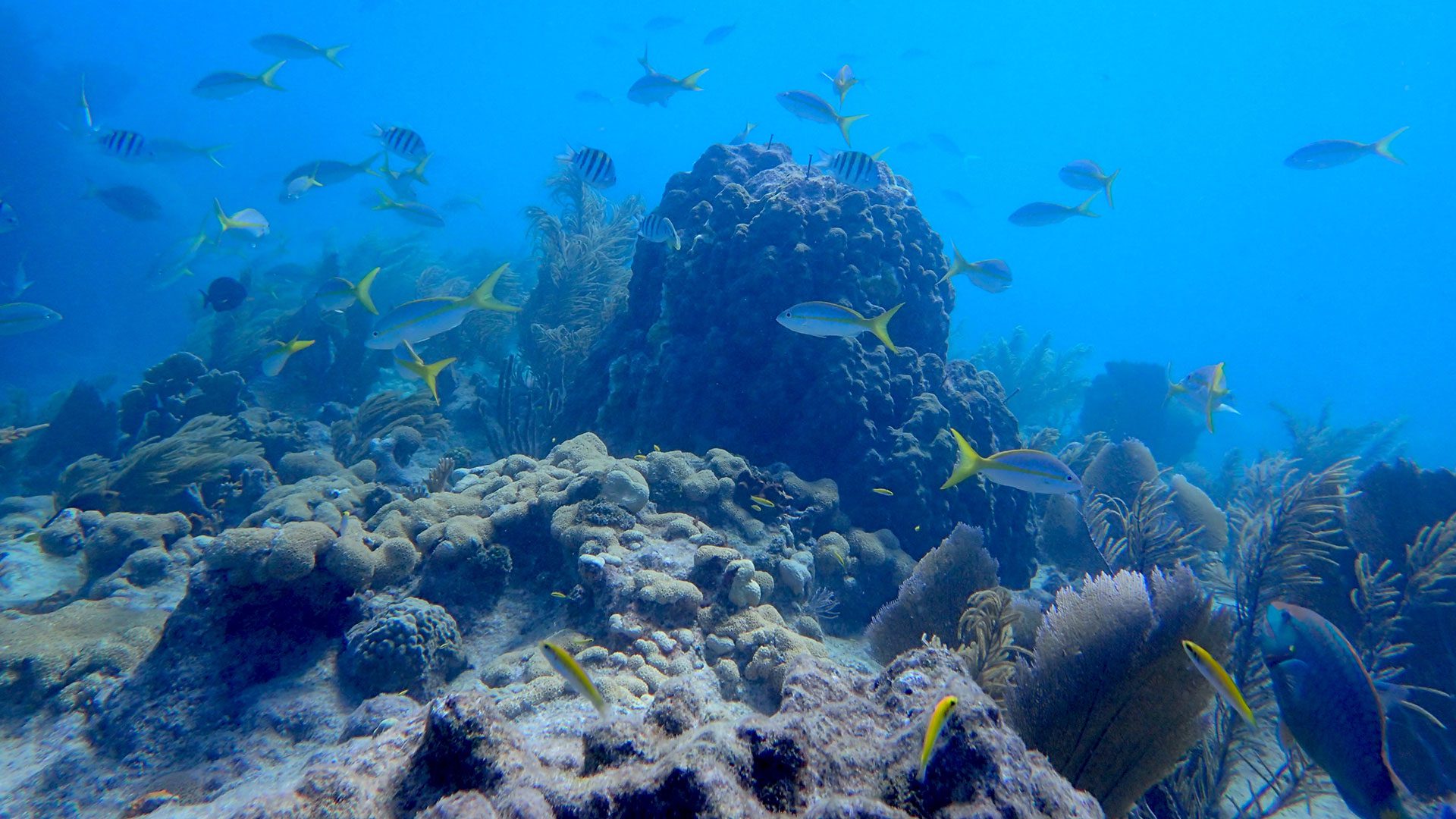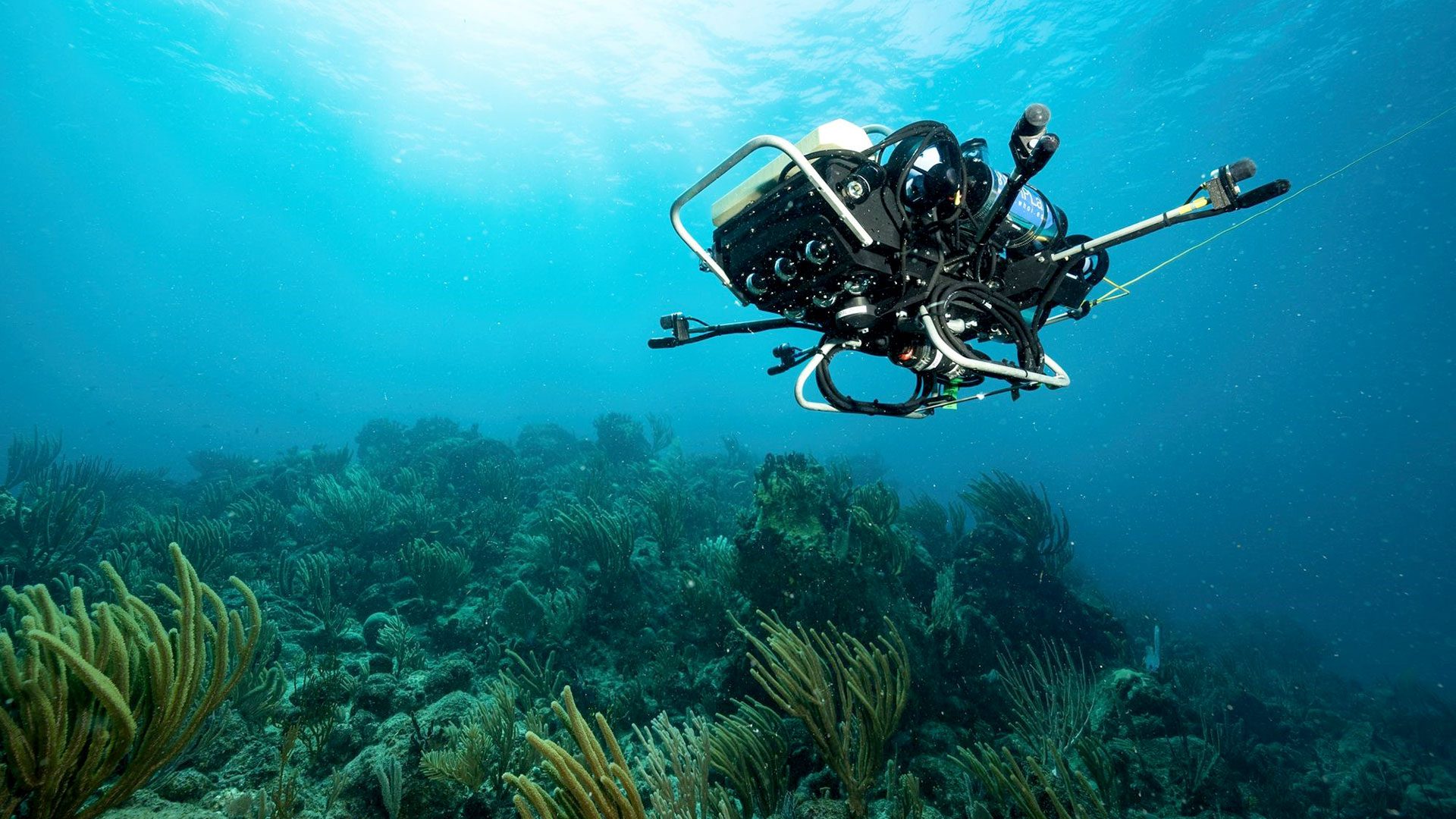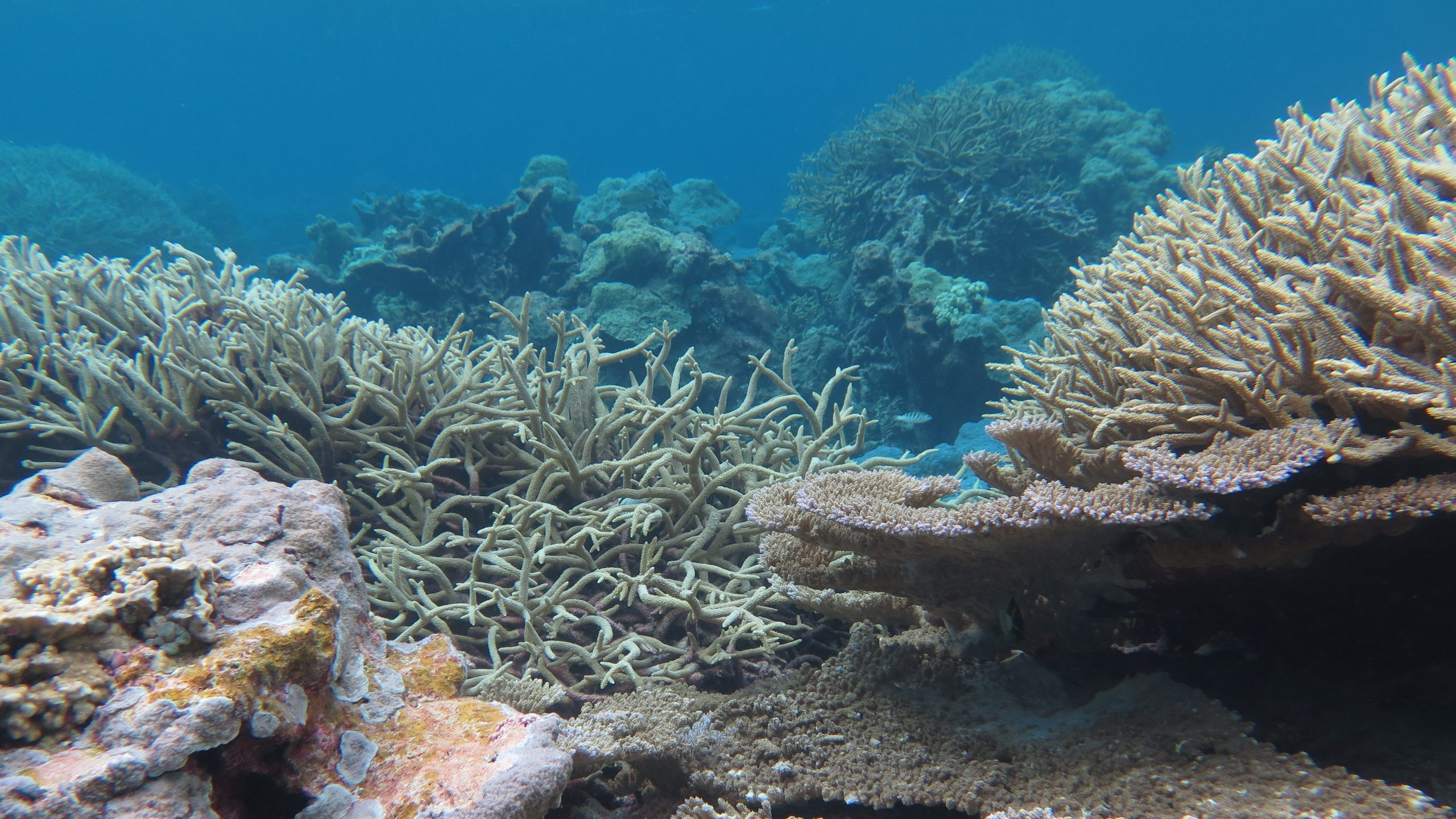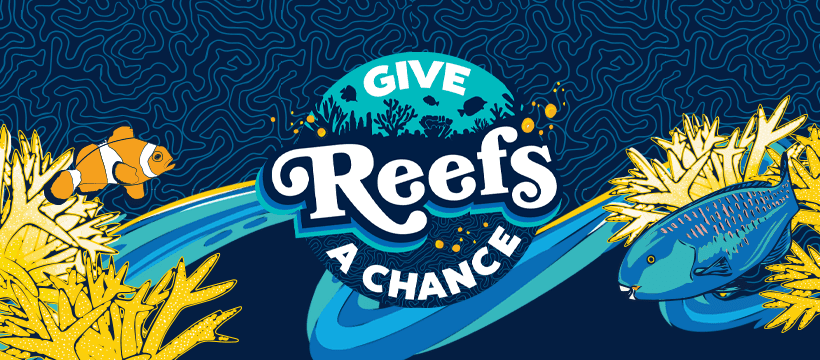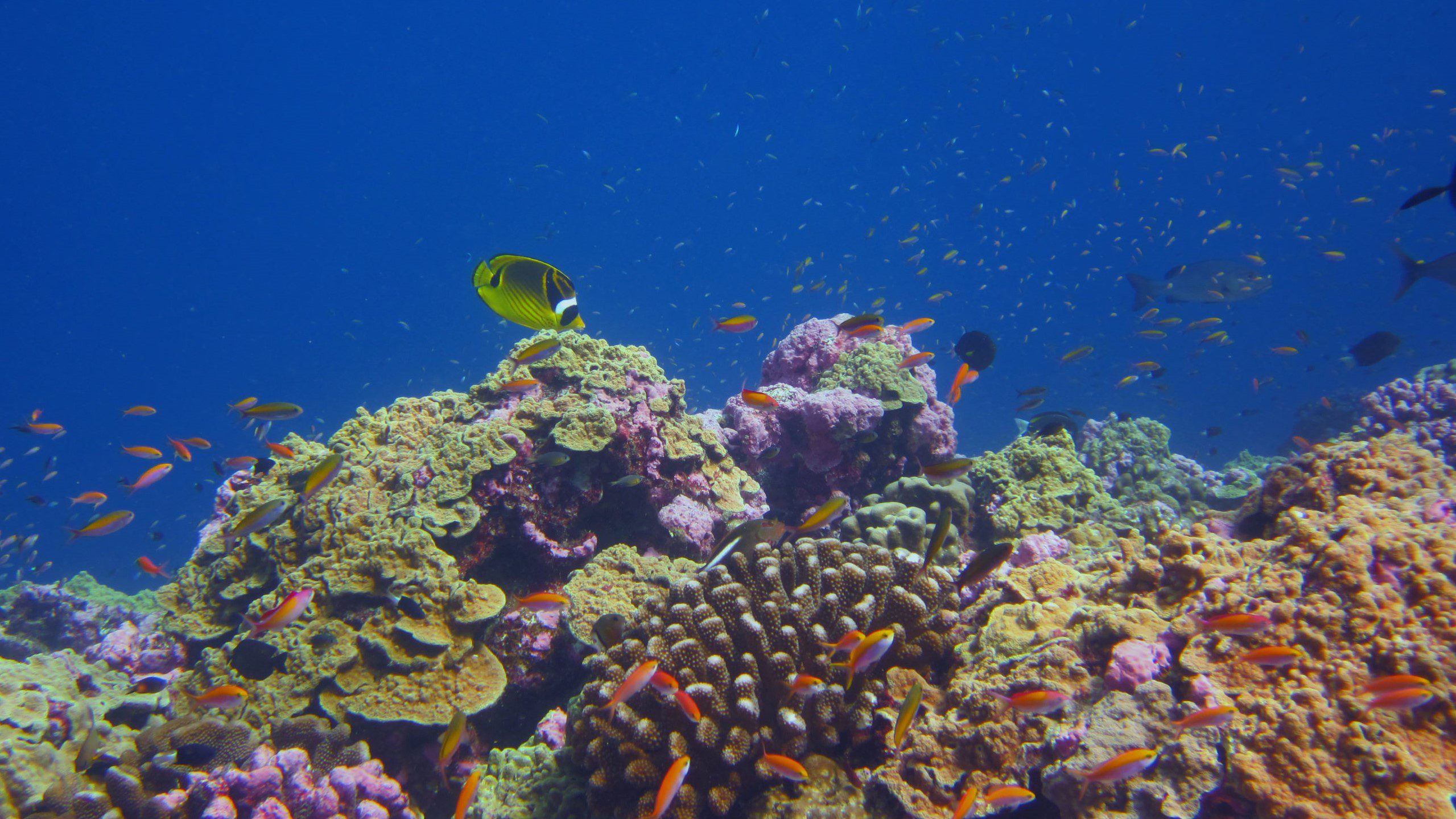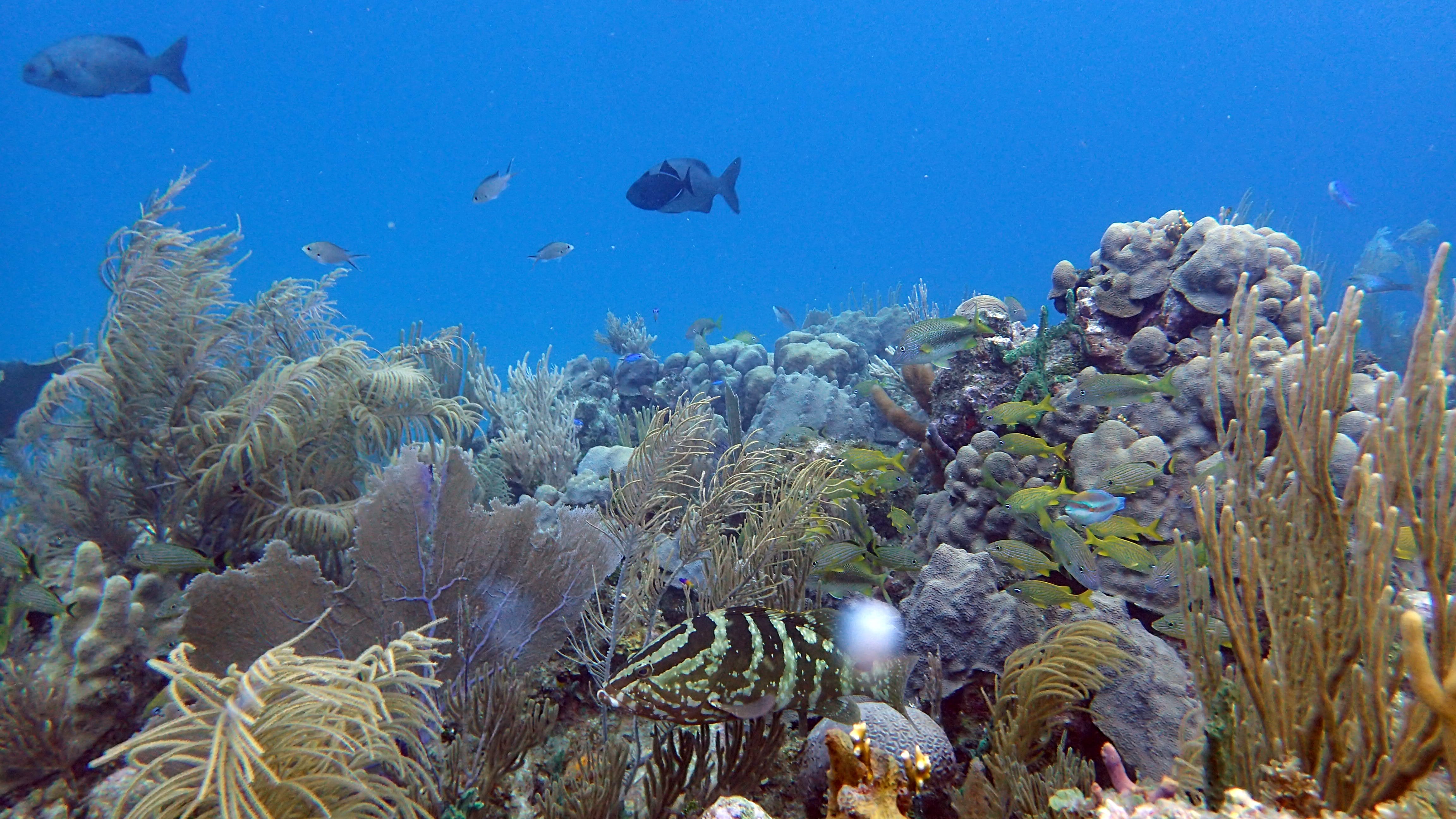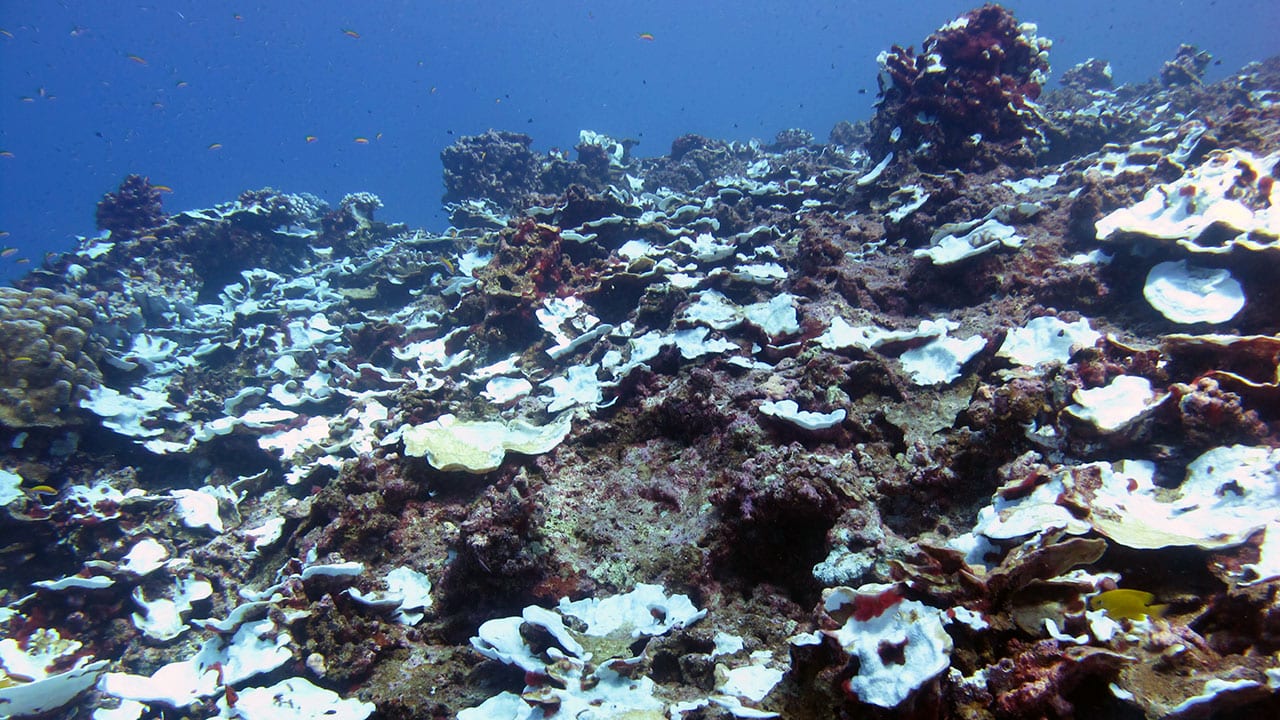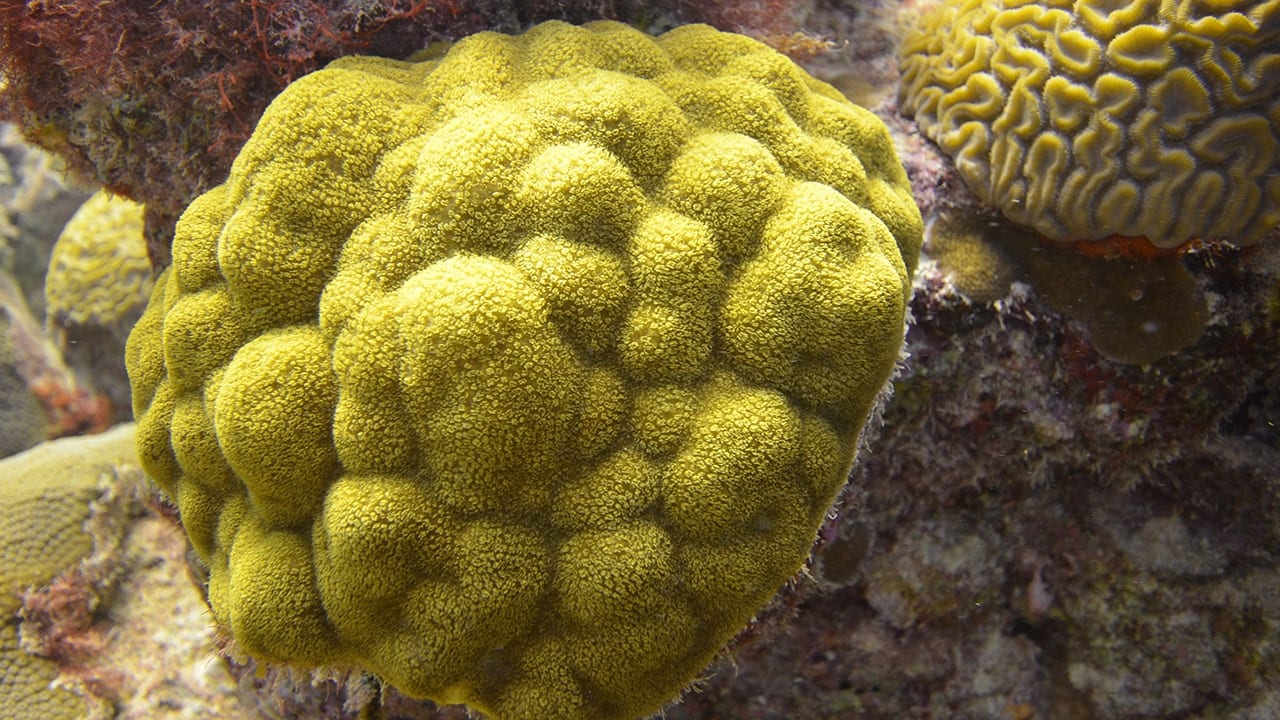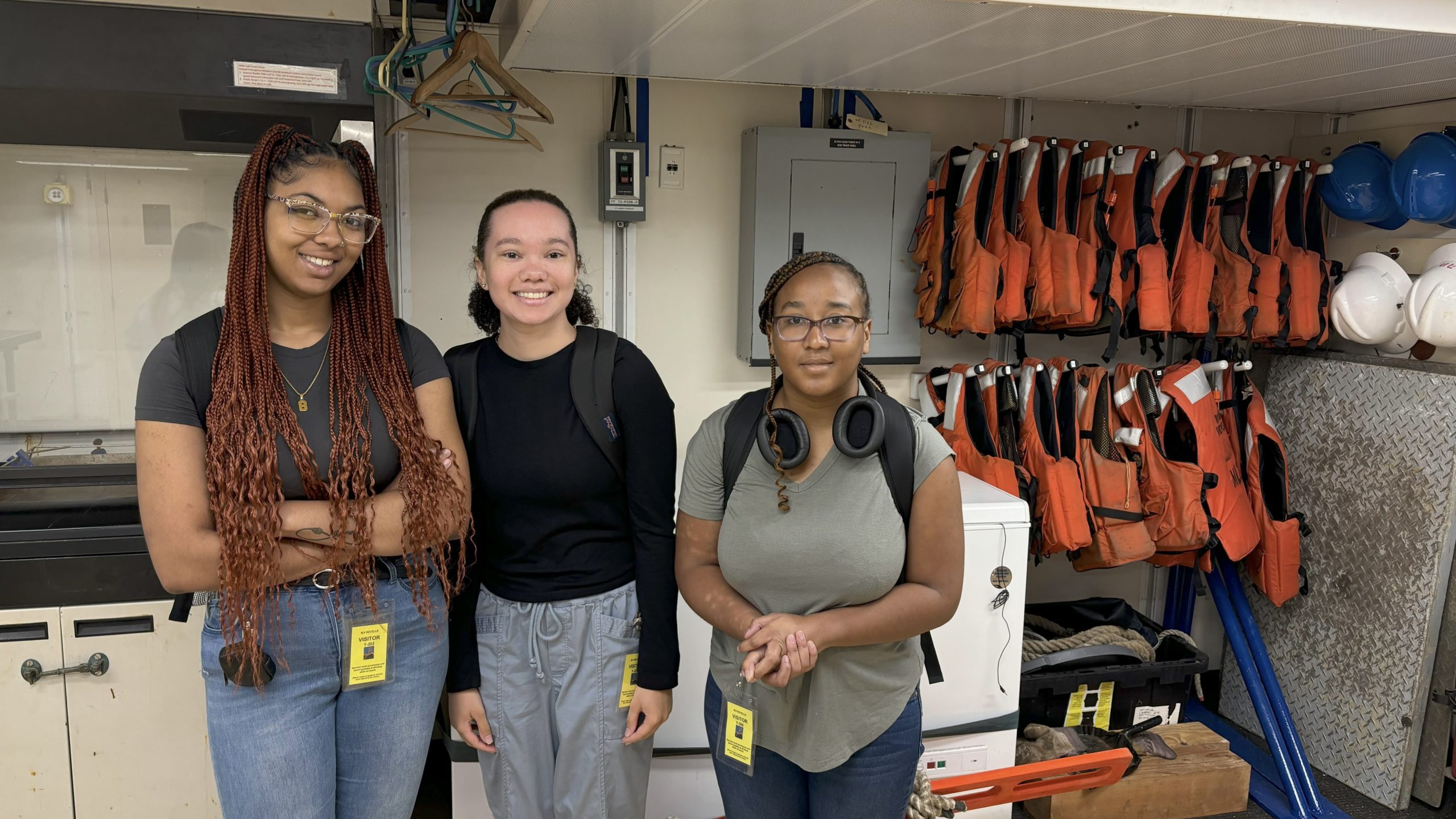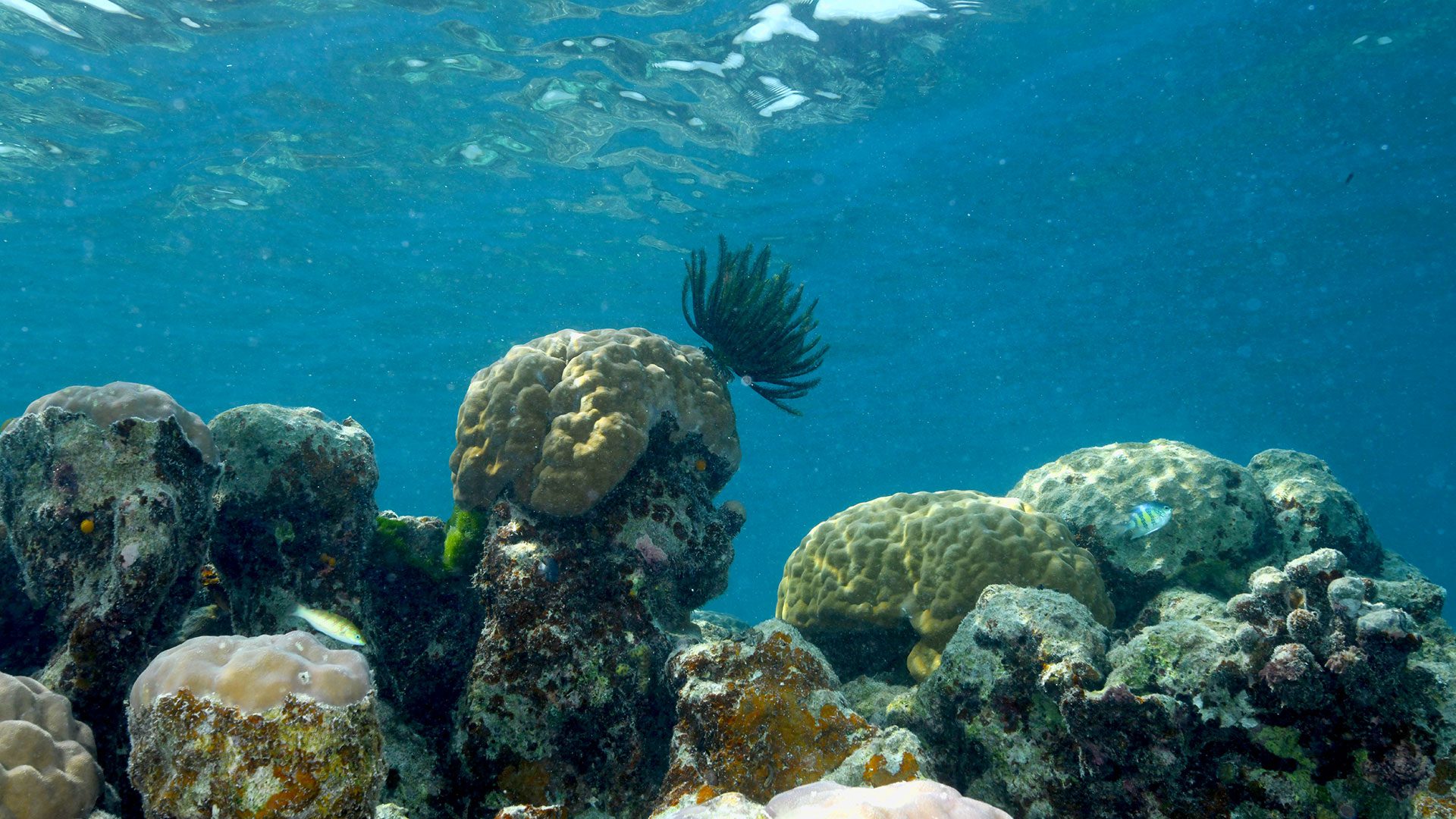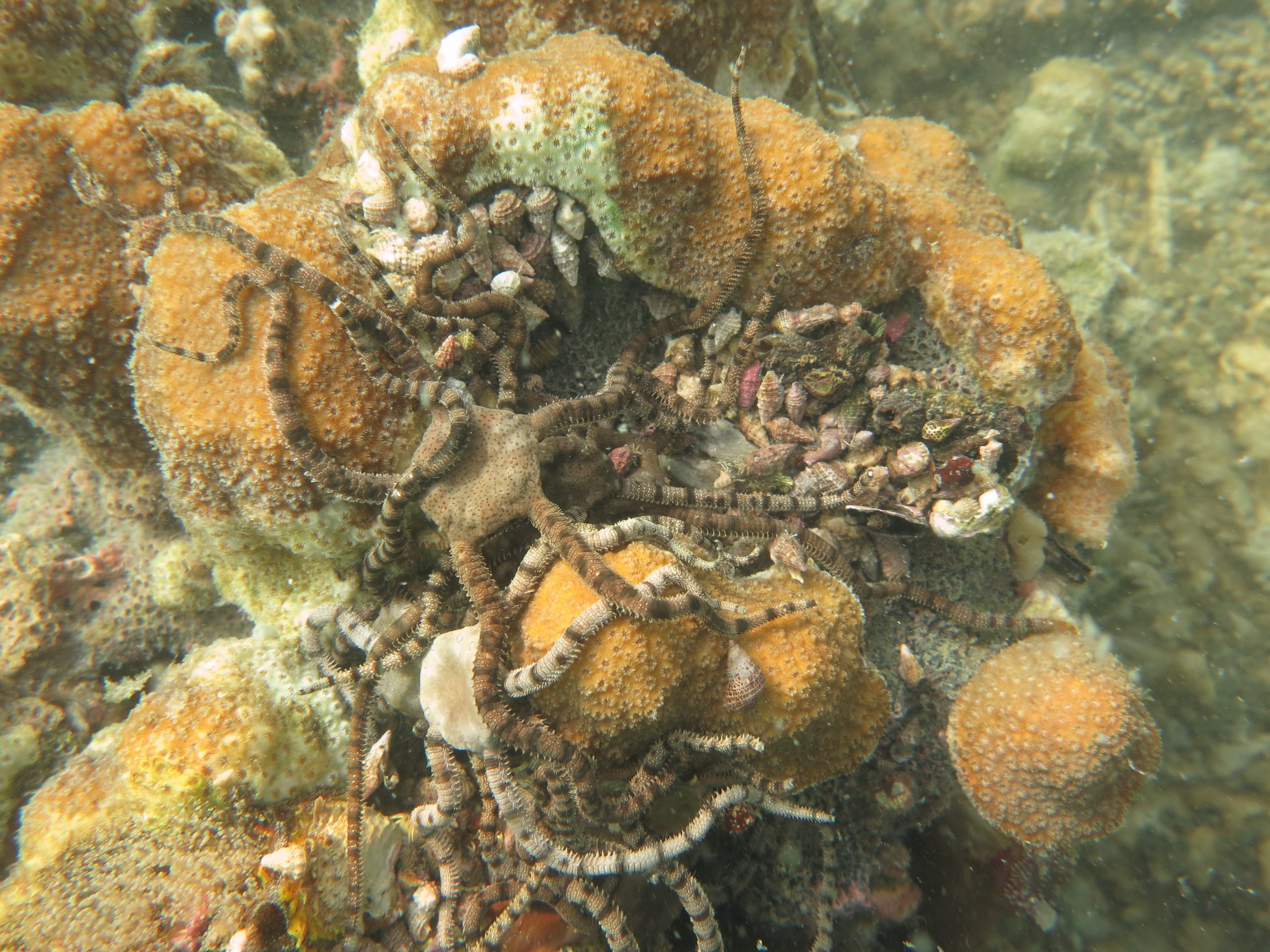News Releases
Development of a curious robot to study coral reef ecosystems awarded $1.5 million by the National Science Foundation
A prototype of an autonomous underwater vehicle capable of navigating complex underwater environments and of collecting data adaptively over long periods of time. Daniel Hentz / ©Woods Hole Oceanographic Institution
Woods […]
Read MoreWHOI Scientists ‘read’ the messages in chemical clues left by coral reef inhabitants
What species live in this coral reef, and are they healthy? Chemical clues emitted by marine organisms might hold that information
Read MoreStudy: eDNA methods give a real-time look at coral reef health
Researchers from WHOI studied the microbes in coral reef water by examining eight reefs in the U.S. Virgin Islands over a period of seven years, which included periods of hurricane and coral disease disturbance.
Read MoreScientists Discover Additional Healthy Deep-sea Coral Reefs and New Seamounts in the Galápagos
Stunning 800 meter-long coral reef discovered with Schmidt Ocean Institute’s underwater robot off Galápagos Islands
Puerto Ayora, Ecuador– Scientists examining underwater cliff ecosystems onboard research vessel Falkor(too) using the 4,500 meter […]
Read MoreInnovative Techniques Provide New Means to Monitor Coral Reef Health
These new techniques, which look at microbes and dissolved metabolites of reefs, offer a new means to examine reef features and have broad conservation applications.
Read MoreToward a New Era of Reef Solutions
WHOI coral reef researchers propose a new technology-centered focus to study and conserve coral reefs
Read More“Digital Reefs” awarded $5 million
The National Science Foundation (NSF) has awarded Woods Hole Oceanographic Institution (WHOI) $5 million to participate in NSF’s ground breaking Convergence Accelerator Program. The project, led by WHOI scientist Anne Cohen, builds the world’s first Coral Reef Digital Twin, a 4-dimensional virtual replica of a living coral reef powered by state-of-the art data and models.
Read MoreWHOI campaign sheds light on new strategies and solutions for the coral reef crisis
In advance of World Ocean Day on June 8, Woods Hole Oceanographic Institution (WHOI) is launching its Give Reefs a Chance campaign, aimed at raising awareness of what WHOI scientists and engineers are doing to tackle the corals crisis, the importance of coral reefs, and what we can all do to give reefs a chance to survive.
Read MoreSome coral reefs are keeping pace with ocean warming
Some coral communities are becoming more heat tolerant as ocean temperatures rise, offering hope for corals in a changing climate. After a series of marine heatwaves hit the Phoenix Islands Protected Area (PIPA) in the central Pacific Ocean, a new study finds the impact of heat stress on the coral communities lessened over time.
Read MoreHow microbes reflect the health of coral reefs
A collaborative study compared seawater from 25 reefs in Cuba and the U.S. Florida Keys varying in human impact and protection, and found that those with higher microbial diversity and lower concentrations of nutrients and organic carbon—primarily caused by human activities—were markedly healthier.
Read MoreStudy Tracks Severe Bleaching Events on a Pacific Coral Reef Over Past Century
As climate change causes ocean temperatures to rise, coral reefs worldwide are experiencing mass bleaching events and die-offs. For many, this is their first encounter with extreme heat. However for some reefs in the central Pacific, heatwaves caused by El Nino are a way of life. Exactly how these reefs deal with repeated episodes of extreme heat has been unclear. A new study from the Woods Hole Oceanographic Institution (WHOI), has uncovered the history of bleaching on a reef in the epicenter of El Nino, revealing how some corals have been able to return after facing extreme conditions. The study was published October 26, 2018, in the journal Communications Biology.
Read MoreStudy Reveals Corals’ Influence on Reef Microbes
As they grow, corals are bathed in a sea of marine microbes, such as bacteria, algae, and viruses. While these extremely abundant and tiny microorganisms influence coral communities in a variety of ways, a new study by researchers at the Woods Hole Oceanographic Institution (WHOI), the Bermuda Institute of Ocean Sciences (BIOS) and University of California, Santa Barbara (UCSB) reveals that corals also have an impact on the microbes in waters surrounding them
Read MoreUltrasounds for Coral Reefs?
In a study, published Aug. 6, 2015 in Marine Ecology Progress Series, scientists at Woods Hole Oceanographic Institution (WHOI) used low-cost autonomous underwater recorders over four months to collect “soundscapes” of reefs in in the U.S. Virgin Islands. They showed how the collective sound recordings of reef inhabitants painted vivid pictures of the reefs’ abundance and diversity.
In a second study, published the same day in Marine Pollution Bulletin, the researchers recorded boat noise—showing how it could mask vital sounds that organisms make to reproduce, feed, and find new homes. They also demonstrated how underwater recorders could help marine managers keep an ear on potentially disruptive human activity in far-off locations.
Read MoreCoral Reefs Threatened by a Deadly Combination of Changing Ocean Conditions
As the ocean ‘s pH decreases and acidifies, coral reefs are more likely to begin dissolving and “drown”. A new study shows exposing corals to added nutrients increases their erosion and dissolution rate tenfold.
Read MoreCoral Reefs in Palau Surprisingly Resistant to Naturally Acidified Waters
Ocean researchers working on the coral reefs of Palau in 2011 and 2012 made two unexpected discoveries that could provide insight into corals’ resistance and resilience to ocean acidification and to aid in the creation of a plan to protect them.
Read MoreEstablishing World-Class Coral Reef Ecosystem Monitoring in Okinawa
Enduring two typhoons over a three-week period in August, Woods Hole Oceanographic Institution (WHOI) researchers, working in partnership with the Okinawa Institute of Science and Technology Graduate University (OIST), […]
Read MoreTracking Fish Through a Coral Reef Seascape
Ocean scientists have long known that juvenile coral reef fishes use coastal seagrass and mangrove habitats as nurseries, later moving as adults onto coral reefs. But the fishes’ movements, […]
Read MoreCoral Reef Fish Make Their Way Home
Coral reef fish hatchlings dispersed by ocean currents are able to make their way back to their home reefs again to spawn, says a groundbreaking study published today in the […]
Read MoreWHOI, NEAQ Embark on Expedition to the Phoenix Islands
A research team led by the New England Aquarium (NEAQ) and Woods Hole Oceanographic Institution (WHOI) are heading out on a 6,000-mile expedition to one of the most remote places on Earth—the Phoenix Islands in the central Pacific Ocean. Throughout the month of September and in the midst of a strengthening Pacific El Nino, researchers will investigate the combined effects of climate change and human activity on the these vast coral reef ecosystems and the diversity of life they sustain.
Read MorePacific Islands May Become Refuge for Corals in a Warming Climate, Study Finds
Scientists have predicted that ocean temperatures will rise in the equatorial Pacific by the end of the century, wreaking havoc on coral reef ecosystems. But a new study shows that climate change could cause ocean currents to operate in a surprising way and mitigate the warming near a handful of islands right on the equator. As a result these Pacific islands may become isolated refuges for corals and fish.
Read MoreBlack Girls Dive Foundation Launches Program in Partnership with Woods Hole Oceanographic Institution
Three BGDF scholars will participate in the BGD IMPETUS-Internship at WHOI. This paid, 10-week summer program provides an opportunity for BGD Scholars to engage in cutting-edge research.
Read MorePalau’s Rock Islands Harbor Heat-resistant Corals
Scientists studying reefs in Palau have identified subgroups of a coral species that exhibit remarkable tolerance to the extreme heat associated with marine heatwaves
Read MoreWHOI multidisciplinary team selected for prestigious National Science Foundation Program
Woods Hole Oceanographic Institution (WHOI) has been selected by the U.S National Science Foundation (NSF) for phase one of a two-part Convergence Accelerator Program, a $21 million investment to advance use-inspired solutions addressing national-scale societal challenges. WHOI is one of sixteen teams across the US chosen to participate in Track E: The Networked Blue Economy, which aims to create a smart, integrated, connected, and open ecosystem for ocean innovation, exploration, and sustainable utilization.
Read MoreWhat happens to marine life when oxygen is scarce?
A new study co-led by WHOI postdoctoral scholar Maggie Johnson looks closely at the changes occurring in both coral reef and microbial communities near Bocas del Toro during sudden hypoxic events, which occur when there is little to no oxygen in a given area of water.
Read More
